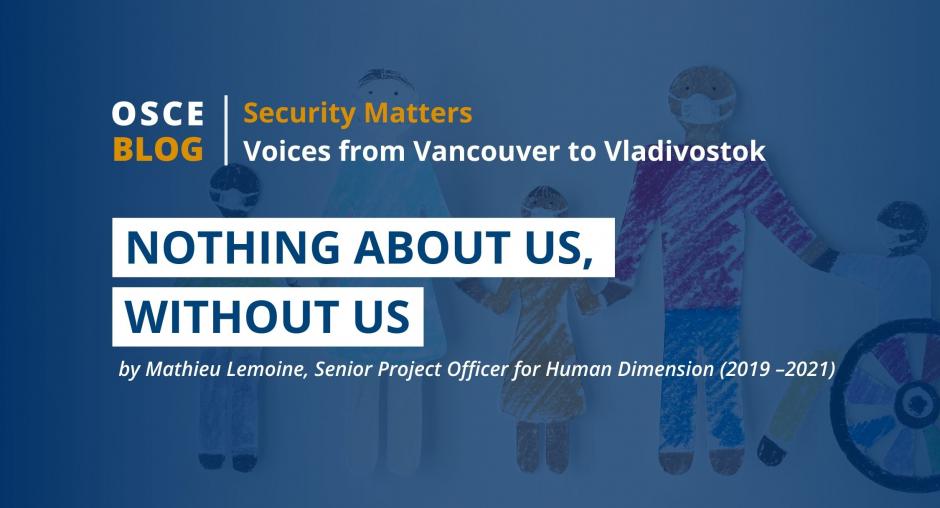Nothing about us without us: Inclusivity and disability rights in Uzbekistan

Nothing about us without us. This is the key principle in the field of disability rights. It means in practice that persons with disabilities and their families want to have their voices heard, particularly when it comes to discussing and deciding how they can best contribute to society.
“According to the UN and the World Bank, there are 4.5 million people with disabilities, of whom 1.15 million people are severely disabled ”, which represents about 13% of Uzbekistan’s 34 million people. The World Health Organization states that “more than a billion people are estimated to live with some form of disability, or about 15% of the world’s population” . These numbers highlight that persons with disabilities are more numerous than what one might think, and it is precisely because of their lack of visibility. What limits them is not their disability but barriers that our environments create for them. To fulfill their potential, they need inclusive societies where everyone can develop according to their dreams, aspirations, and needs.
One important step towards inclusivity was ratifying the United Nations Convention on the Rights of Persons with Disabilities (CRPD), which Uzbekistan did in July 2021. Before that happened, a great deal of effort was made by Uzbekistan’s community of persons with disabilities, the OSCE Project Co-Ordinator in Uzbekistan, international organizations who worked with the Government to adopt the Law on the Rights of Persons with Disabilities. This was the first and essential step towards the ratification of the CRPD, as it brought the country’s legislation in this field in line with international standards, with a modern view on disability.
The Association of Persons with Disabilities of Uzbekistan (the Association), the main umbrella organization for civil society groups promoting disability rights, had been lobbying and advocating for the ratification of the CRPD for many years. Ratification was a significant achievement, not only because the Convention is the main international human rights instrument to promote and protect the rights of persons with disabilities, but because it was the result of joint efforts that made it happen. But it would not have been possible without the political momentum and fast-paced reforms implemented by the Government happening in Uzbekistan since late 2016.
The OSCE Project Co-Ordinator in Uzbekistan has been working closely with the Association to promote and protect the rights of persons with disabilities since 2019. Our work focuses on capacity-building of civil society groups representing persons with disabilities throughout the country.
The role of the OSCE Project Co-ordinator and the international community in Uzbekistan has been to advocate for international standards, such as the importance of the social model of disability over the medical model, with the former being based on the recognition that handicap is caused by the absence of wheelchair ramps and not by difficulty in walking. Our contribution has been in promoting the fact that the law should be human rights-based, inclusive, and gender-sensitive, and emphasizing the necessity for a constant open dialogue and partnership between the Government and civil society organizations.
Ratifying the CRPD does not remove all the existing barriers for persons with disabilities or the challenges their families face. It is just the beginning of the journey towards creating an inclusive society that ensures full participation of people with disabilities and makes them feel like everyone else. This can be achieved if the implementation is guided by a human rights-based, holistic and whole-of-society approach.
The OSCE Project Co-Ordinator in Uzbekistan will continue supporting the Government and civil society in promoting the rights of persons with disabilities as part of its wider efforts towards the implementation of OSCE commitments and international human rights standards. In the same way as joining forces made the ratification happen, working together will no doubt help to move towards making the implementation a reality.

